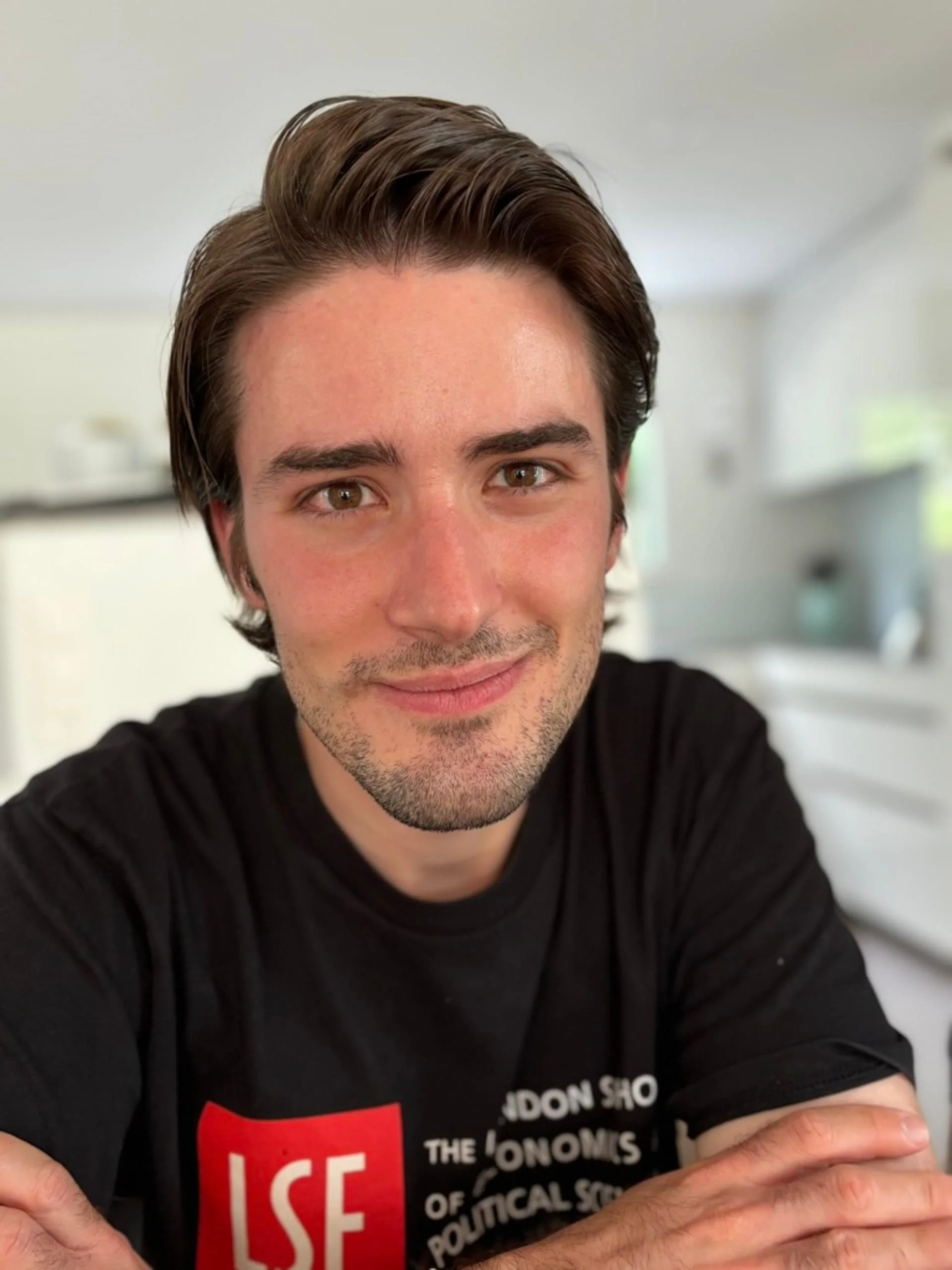Elite persistence in 19th century Europe: a Q&A with Noah Sutter
Elite persistence in 19th century Europe
Noah Sutter is a PhD candidate in the Department of Economic History
Archival work in general is very exciting. Opening a binder of historical documents in an archive is always a surprise. Sometimes, with the help of archivists, you find treasures.

What are you currently researching?
I am researching elite persistence in 19th century Europe, specifically, I am looking at the nobility after the French Revolution and follow them throughout the 19th century. Recent research has shown that wealthy elites weather shocks like revolutions and political change surprisingly well. Even cataclysmic events like the Chinese and Cultural Revolution did not seem to have hurt the pre-revolutionary elites in the long-term. We still do not fully understand why this is the case.
Why did you choose this area of study?
I am fascinated by the long nineteenth century and the transitions it has brought onto the world. As Eric Hobsbawm, most of the vocabulary you need to understand a newspaper today was born in the early nineteenth century. For many authors this period is a crucial turning point – especially in economic terms. For Marx it is the age of the bourgeois revolution, for Polanyi it contains the Great Transformation (to a market economy), for Koselleck it is the beginning of the permanent crisis of world history. I am fascinated by the idea of capturing these interrelated ruptures and changes in numbers and observing them in large datasets. Elites play a crucial role in all of this. Old elites face the challenge of having to navigate a new environment and new elites face the challenge of having to legitimise their rise. Both groups find strategies to do so.
How will your research have a wider impact on society? Can you give some real-world examples of the impact your research will have?
Knowing about historical elite persistence can help us understand why elites persist across generations today. Additionally, the transformation of a society of orders into an ownership society, as Piketty calls the period, coincided with the gradual rise of ideas of meritocracy. The new society, the new wealth distribution, needed new ideological frameworks to acquire legitimacy. Today, the idea of meritocracy, initially coined by Michael Young as dystopia, is again front and centre of many political debates. Understanding the economic changes that coincided with its emergence and the interplay between the two can help inform our discourse about meritocracy and what we mean by it.
What have been the highlights of your research work so far?
My research involves the digitization of millions of estate tax records. The employees of provincial enregistrement offices in the 1700s and 1800s would have never expected their records to be transformed and looked at in that way 200 years later. All these local minor officials saw one piece of this giant puzzle, one body part of the elephant that is the wealth distribution of France. By looking at millions of such entries, a new hitherto unseen picture emerges. Seeing a signal emerge from this initial noise is exciting. Archival work in general is very exciting. Opening a binder of historical documents in an archive is always a surprise. Sometimes, with the help of archivists, you find treasures. I once found complete tax records for the short-lived Rauracian Republic in the archives of an extinct prince-bishopric in a small town in the Jura mountains. This was a highlight.
What has been your biggest challenge so far?
The research process is full of “unknown unknowns” – especially early on in one’s career. This makes it very hard to plan. A PhD is a huge multi-year project that involves the completion of tasks, which you were still incapable of at the beginning of your PhD. You are entering uncharted territory – both in terms of your skill and in terms of research. This can be a cause for anxiety. Luckily, academic supervisors and peers are very good guides.
What advice would you give to prospective students on the most effective way to approach research and keep stress levels down?
Don’t overestimate what you can accomplish in a day or a week but never underestimate what you can do in a year. Make sure to talk as much as possible to your peers and use every opportunity to share your work with more senior scholars – even if it is still early stage. Every conference or workshop I have attended has been a boost for my creativity.
In a few words, what is the best thing about studying at LSE?
The best thing about LSE is that it features such a high concentration of interesting intellectuals in a very small space. Inevitably, interesting encounters happen between Kingsway and Lincoln’s Inn. The most interesting ideas always emerge when different departments interact. I was able to teach a summer school that combined economics, history, and sociology, and took courses in political philosophy at the government department. The conversations I had and writing that has emerged from these encounters have always inspired me immensely.